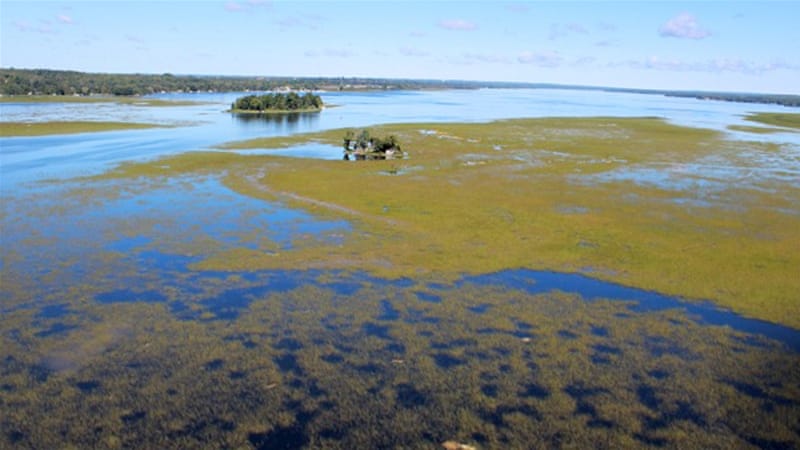How a conflict over wild ricing on Pigeon Lake is drawing attention to Indigenous rights and traditional foods.
 Ennismore, Ontario - Owners of cottages near Canada's Pigeon Lake have a bone to pick with James Whetung.
Ennismore, Ontario - Owners of cottages near Canada's Pigeon Lake have a bone to pick with James Whetung.For years, Whetung has been seeding the lake with wild rice. He harvests the crop and then sells packaged products through his company, Black Duck Wild Rice. But some cottage owners aren't happy.
Pigeon Lake is one of the 250 lakes and waterways in the Kawartha Lakes region of Ontario, Canada. Located two hours east of Toronto, it is a popular destination for summer getaways, fishing, hiking, recreational boating, and building cottages.
Since 2007, a group of residents of Pigeon Lake have been fighting Whetung's seeding of wild rice, claiming their shorelines are filled with the marshy plant that makes boating difficult. They've protested, held community meetings, contacted politicians, petitioned, and formed a group called Save Pigeon Lake.
Whetung, however, insists that his interests are not entrepreneurial and that his aboriginal treaty rights allow him to harvest the rice. As a member of Curve Lake First Nation, he says it is part of a wider effort to revive the local indigenous culture, which was undermined by colonisation.
"Our people have been using the rice for thousands of years," says Whetung. "The rice was decimated by the government, by other groups. Whenever they are building cottages or homes along the shore, they would dredge out the shoreline, [destroying the] rice."
But underlying tensions exploded into a heated dispute last August, when Parks Canada, a Canadian government agency that manages national parks, lands, and waters, gave Pigeon Lake residents permits to cut down some of the wild rice beds. Now, the local First Nations claim their inherent treaty rights have been violated.











0 comments:
Post a Comment